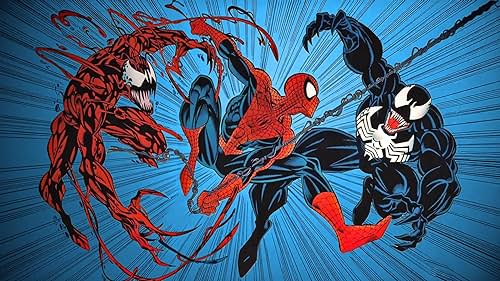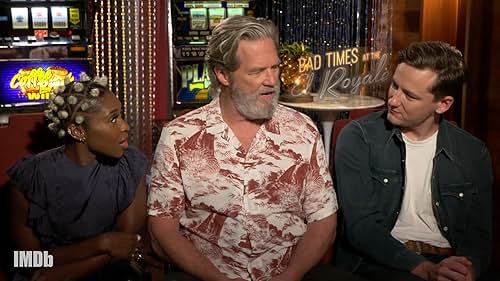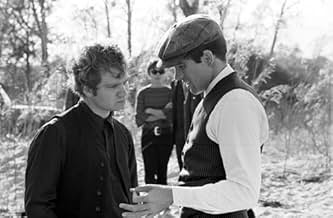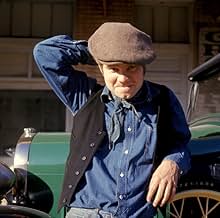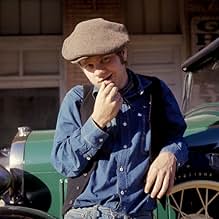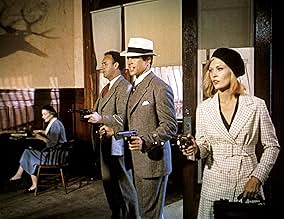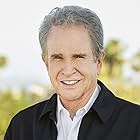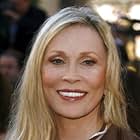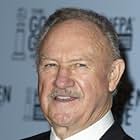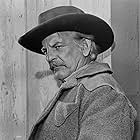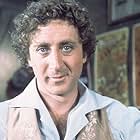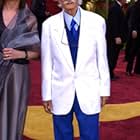Bored waitress Bonnie Parker falls in love with an ex-con named Clyde Barrow and together they start a violent crime spree through the country, stealing cars and robbing banks.Bored waitress Bonnie Parker falls in love with an ex-con named Clyde Barrow and together they start a violent crime spree through the country, stealing cars and robbing banks.Bored waitress Bonnie Parker falls in love with an ex-con named Clyde Barrow and together they start a violent crime spree through the country, stealing cars and robbing banks.
- Won 2 Oscars
- 22 wins & 29 nominations total
Martha Adcock
- Bank Customer
- (uncredited)
Harry Appling
- Bonnie's Uncle
- (uncredited)
Garrett Cassell
- Cop
- (uncredited)
Mabel Cavitt
- Bonnie's Mother
- (uncredited)
Patrick Cranshaw
- Bank Teller
- (uncredited)
Frances Fisher
- Bonnie's Aunt
- (uncredited)
Sadie French
- Bank Customer
- (uncredited)
Garry Goodgion
- Billy
- (uncredited)
- Director
- Writers
- All cast & crew
- Production, box office & more at IMDbPro
Storyline
Did you know
- TriviaWhen Warren Beatty was on-board as producer only, his sister Shirley MacLaine was a strong possibility to play Bonnie. But when Beatty decided to play Clyde himself, for obvious reasons he decided not to use MacLaine.
- GoofsThe film portrays Texas Ranger Frank Hamer as a vengeful bungler who had been captured, humiliated, and released by Bonnie and Clyde. In reality, Hamer was already a legendary Texas Ranger when he was coaxed out of semi-retirement to hunt down the duo. He never met either of them until he and his posse successfully ambushed and killed them near Gibsland, Louisiana, in 1934. In 1968, Hamer's widow and son sued the movie producers for defamation of character over his portrayal and were awarded an out-of-court settlement in 1971.
- Quotes
Clyde Barrow: This here's Miss Bonnie Parker. I'm Clyde Barrow. We rob banks.
- Alternate versionsSeveral scenes (most of which can be read in the film's script) were shot but removed or altered for various reasons, either for content or to keep the running time under two hours. These scenes are, in chronological order:
- The earliest versions had Clyde shooting and killing the butcher during their fight. This was toned down to Clyde just shooting the butcher, and finally just pistol whipping him. In real life, speculation still exists as to whether Clyde Barrow actually committed the crime this is based on; although his photo was picked out, the method in which it was executed doesn't fit his MO. In the final cut, there is a brief jump in the film during the fight, where it was spliced from the original, more graphic conclusion.
- After picking up C.W., Clyde and Bonnie take him to a diner where they plan their next robbery.
- After Clyde kills Doyle Johnson (the man on the running board), Bonnie talks with CW in the bathroom while Clyde cleans his guns and laments his actions. In the bathroom CW bathes and Bonnie attempts to seduce him, but changes her mind when CW proves to be less than romantic material. A still from this scene-- Bonnie wearing a slip and Clyde's hat-- can be seen on the DVD.
- A longer scene of Buck and Blanche's approach to the motor lodge. Buck is singing Bible hymns and Blanche scolds him for bringing her to see Clyde.
- A longer version of Bonnie's visit home; she sits in the car and her sister gives her a perm (a portion of this-- Bonnie on the running board getting her hair put up-- exists in the final film).
- A very long sequence in which Bonnie and Clyde get drunk and come to terms with their impending death. They trash their room and rip out the mattress from their bed, turning it into a makeshift coffin. They then put on their best clothes and put makeup on each other so they can see what they will look like when they're dead. The scene concludes with Bonnie and Clyde dancing around CW by candlelight and chanting "The Hearse Song."
- During the Platte City raid, C.W. uses a machine gun to attack the armored car instead of grenades.
- The final shootout, in its earliest form, was done entirely with still photos shown over sounds of machine gun fire and screams, and we never actually saw Bonnie or Clyde dead. The movie ended with the two farmers running towards the car while "Foggy Mountain Breakdown" Played in the background.
- ConnectionsFeatured in The 40th Annual Academy Awards (1968)
- SoundtracksDeep Night
Music by Charles Henderson
Lyrics by Rudy Vallee
Performed by Rudy Vallee
(heard over the opening credits)
Featured review
Although numerous chapters in film manuals have been dedicated to Arthur Penn's violent, jagged, cynical "Bonnie and Clyde"--and, indeed, it kick-started a new permissiveness in American movies which then generated many imitations--the first 20 or so minutes of the picture are pretty awful. Depression-era waitress, bored and thrill-seeking, finds herself drawn to a smooth-talking, reckless hood, an ex-con who, when playfully dared to, robs a general store right in front of her. He's sexually impotent but does have a sympathetic heart for the unfortunates and the working class; she's a high-wire act, strictly amoral and greedy. Their initial meeting outside her house has all the conventions of a standard 1930s drama--and just because the movie's look is generally correct doesn't mean what's happening on the screen is original. Producer Warren Beatty and screenwriters Robert Benton and David Newman were inspired by the French New Wave in regards to the film's approach and style, and their efforts to duplicate the amoral feel of European films paid off (this is a good-looking picture shot by Burnett Guffey, who won an Oscar). However, Arthur Penn's direction isn't visionary, and the multiple car-riding shots with back projection don't seem to break new ground. The film's greatest achievement--aside from its textured look--is the casting: Beatty and Faye Dunaway do marvelous work in the leads; Gene Hackman and Estelle Parsons are also fine as Clyde's brother and sister-in-law (Parsons won the film's second of two Oscars as Best Supporting Actress); Michael J. Pollard is an amiable curiosity as partner C.W.; and there are dandy smaller bits by Denver Pyle, Dub Taylor and Gene Wilder. The violence grows increasingly, steadily, as the film inches toward its queasy conclusion, while Penn juggles (successfully at times) ribald character moments with deadly serious--and bloody--scenes (which also became fashionable). The sweat and the flies, the downtrodden and the righteous, they all get a work-out in this scenario, which, in its best moments, has a prickly-comic and dangerous edge. Nominated for 10 Oscars in all, including Warren Beatty as Best Actor and producer of the Best Picture, Dunaway as Best Actress, Hackman and Pollard in the Supporting Actor category, Penn for his direction, Benton and Newman for their original screenplay and Theodora Van Runkle for her costumes (which started a brief fashion trend). *** from ****
- moonspinner55
- Oct 6, 2008
- Permalink
Details
- Release date
- Country of origin
- Official site
- Language
- Also known as
- Bonnie und Clyde
- Filming locations
- Red Oak, Texas, USA(Bank Robbery)
- Production companies
- See more company credits at IMDbPro
Box office
- Budget
- $2,500,000 (estimated)
- Gross worldwide
- $1,475
- Runtime1 hour 51 minutes
- Sound mix
- Aspect ratio
- 1.85 : 1
Contribute to this page
Suggest an edit or add missing content



